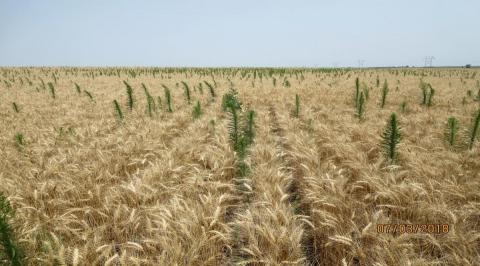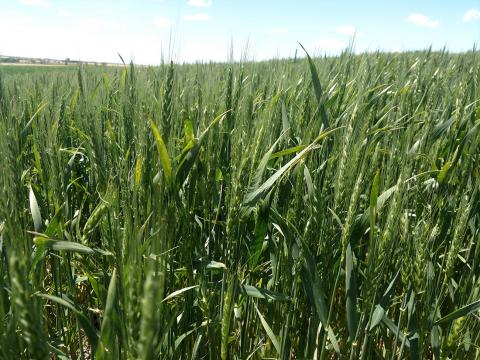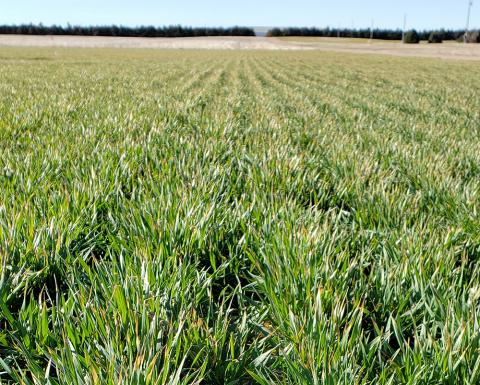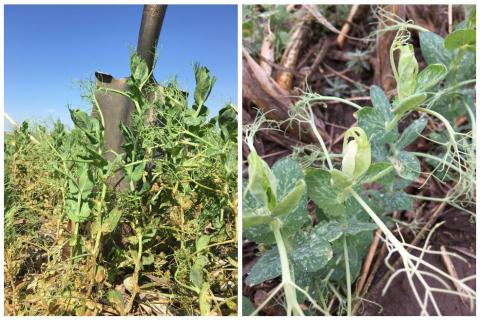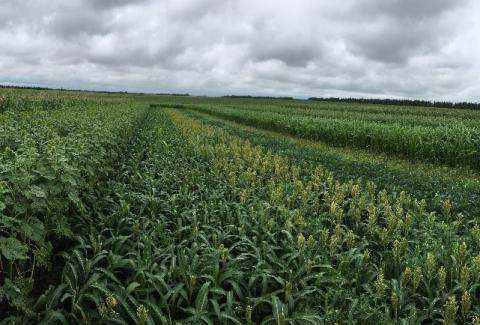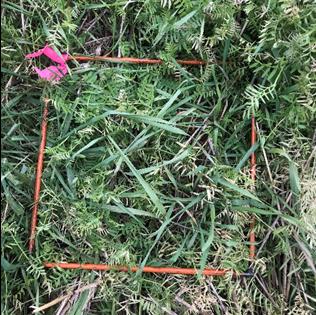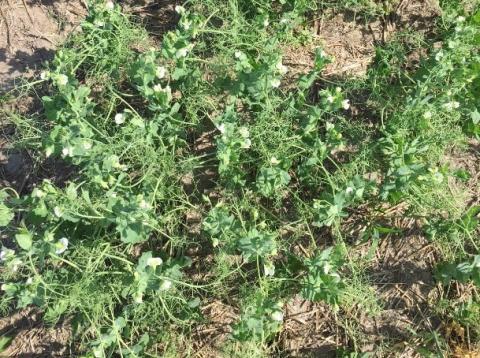Controlling Weeds Post-Harvest in Winter Wheat
July 12, 2019
Wet weather this year made timely herbicide applications in winter wheat difficult, allowing substantial weed populations to get a foothold. The author discusses cultural and chemical options for weed management.
Wheat Update
May 24, 2019
Wheat growth is running 7-10 days behind normal across much of the state, which may push the grain-fill period into some of the hottest days of the wheat season. Delayed development likely helped most wheat escape injury from snow and low temperatures early this week.
Panhandle Wheat Report
May 3, 2019
Wheat growth in the Panhandle has been hampered by cold temperatures this spring and is behind normal development, but overall it is expected to yield well.
Field Pea Guide to Herbicide Carryover and Herbicide Efficacy
March 21, 2019
When integrating field peas into a crop rotation, herbicide carryover is one of the most important things to consider. This guide can help you plan your herbicide program to avoid potential crop injury due to carryover injury.
Double Cropping Field Peas with Cover Crops, Forages, and Short-Season Crops
January 9, 2019
Farmers throughout the Corn Belt may want to consider diversifying traditional corn and soybean rotations to increase agronomic sustainability and to spread financial risks associated with low market prices of corn and soybean. An alternative is a more diverse crop rotation using field pea (short-season grain crop) followed by cover crops, forages, or short-season crops (Figure 1).
Impact of Cover Crop Management on Rainfed Corn Production in Western Nebraska
January 9, 2019
Researchers report their findings from a one-year cover crop study at two sites in western Nebraska to study the impact of planting and termination dates and cover crop species selection. This article is part of the Crop Production Clinic Proceedings 2019.
Adoption of Yellow Field Pea: Replacing Summer Fallow with Field Pea and the Relationship between Planting Timing, Population, and Yield
January 9, 2018
How much will yellow field pea affect soil fertility and soil water content when replacing fallow in a wheat-corn-fallow rotation? This article from the 2019 Crop Production Clinic Proceedings.reports on 2018 research to address this question.
Q&A: How Can I Control Winter Annuals Now Before Planting Wheat?
October 24, 2018
What is your herbicide recommendation for someone who wants to plant wheat, but has a lot of winter annuals coming up, including marestail?


